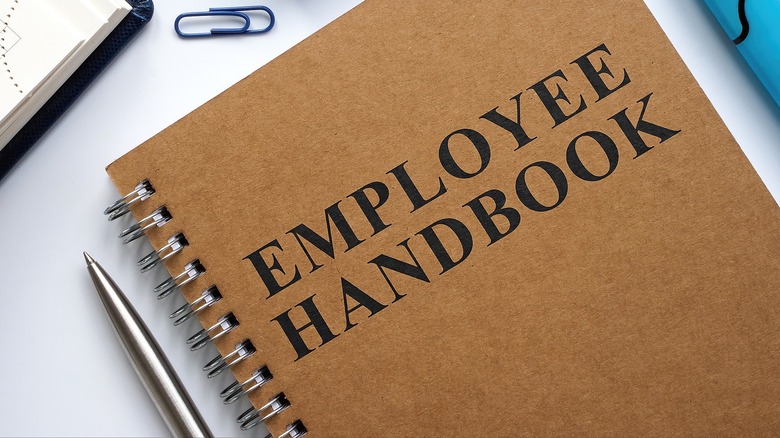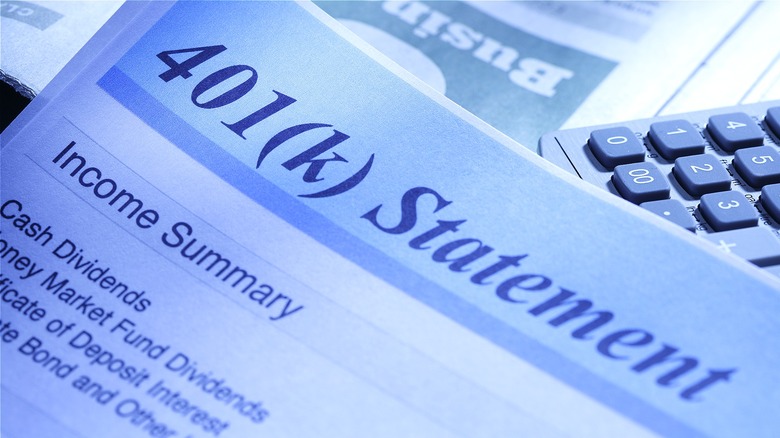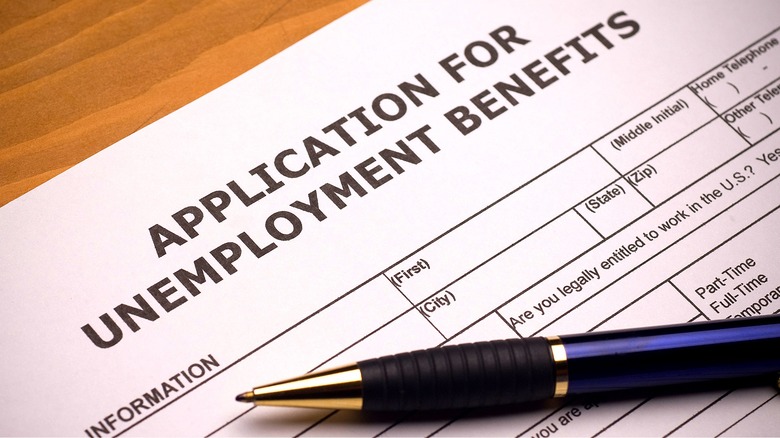The First 5 Things You Should Do After Getting Fired
Losing your job is a jarring experience. Whether it's due to you being fired or you're part of a mass layoff, it nonetheless changes your life in an instant, and while you'll need time to grieve and process your job loss, you also need to take actionable steps before too much time passes. When it comes to your finances, specifically, you need to make sure you have things in order so you're able to move forward, which eventually will include restarting your job search.
According to the Bureau of Labor Statistics, the average employee tenure for United States workers is 4.1 years, with this number going up considerably depending on a person's age. For example, older workers are more likely to have stayed with the same employer for more than 10 years. This said, a survey conducted by Harris Poll for career development and outplacement company INTOO found that 40% of Americans have either been laid off or fired from their job at least once in their lifetime. This echoes a 2023 Morning Consult survey, which found that nearly two-fifths of Americans were concerned about losing their job, while 75% were concerned about widespread job losses in the U.S. So with a 2:5 chance of being fired or let go from your job at some point in your career, should this happen, here are five steps you should take first.
1. Don't hesitate to ask questions
If anything is unclear, ask questions regarding 1) the reason behind your firing/layoff, and 2) what your options may be going forward, including if there's opportunity elsewhere in the company (aka redeployment). If your company has an employee handbook, now's the time to review the section on termination. Note that, according to HR platform Paycor, all states but Montana can be presumed to be at-will employment (though, with restrictions), meaning a company can fire an employee at any time, for any reason, so long as that reason isn't discriminatory or illegal. At-will employment also allows a person to leave their job at any time and without notice.
Direct any questions you may have regarding your termination to your company's human resources department. Also, if not already provided, request a termination letter, which will include information like the reason(s) for your separation, as well as next steps with regard to pay, your last day, benefits (specifically, your health plan), offboarding, etc.
Note that some states, including Arizona, California, and Illinois, are required to provide separation notices to fired or laid-off employees. Research your state's requirements to ensure your termination is handled correctly. Further, in the case of a layoff, you may want to request a letter that makes clear your departure from the company was beyond your control, such as due to downsizing or a merger with another company that ultimately eliminated your role.
2. Review your severance package carefully
If you're laid off or your job has been eliminated, your company might offer you severance to help you through the initial period following your job loss. This offer is typically based on your length of employment. For example, according to Kiplinger, a common severance payout is two weeks of pay for every year you're with a company.
So, for the aforementioned average tenure of 4.1 years, that'd be another four biweekly paychecks after your last day. This being said, note that companies aren't required to provide severance, per the Department of Labor. Further, if you were fired due to, say, poor performance, the situation will be different than if you were laid off through no fault of your own.
However you're exiting your company, you'll still want to know about your final paycheck, along with other compensation you may be entitled to, such as unused paid time off or commissions. It's important you have a clear understanding of what you're due upon leaving, and if anything raises questions, ask HR for clarification. What's more, career experts like The Muse advise not to sign anything concerning severance until you've had a chance to review it carefully.
3. Check on your retirement plan
While you definitely need to figure out your money situation in the present after being fired or laid off, you'll also want to check on your future; i.e., your retirement account. If you have a 401(k) with your ex-employer, you'll need to know what will happen to your plan, now that you're no longer an employee. Basically, the options for your 401(k) if you quit will be the same as if you're fired or let go: leave it with your former employer, if allowed; roll it over into a new 401(k) or IRA; or cash it out early.
The third option, cashing out your 401(k) early, you might consider if you don't have an emergency savings fund to help you through this period of unemployment. Everyone's situation is different, but keep in mind the short- and long-term consequences of this option: 1) you'll pay a penalty of 10% for withdrawing your funds early, plus applicable taxes on the money come tax time, and 2) you'll reset your retirement savings to zero and lose the future compounding interest on what you had already saved.
4. Request a letter of recommendation
If you were laid off from your job, request a letter of recommendation. Doing so now will make it easier for your team lead/manager, as far as being able to speak specifically about your contributions to the team and the kind of employee you were during your time with the company. While they can still provide this kind of testimonial down the road, there's no need to push it into the future when you can use a recommendation sooner rather than later (i.e., once you restart your job search).
If you were fired for your job performance, then this step won't apply. However, you can take this opportunity and turn it positive, too — by learning from it and making sure you don't make the same mistake(s) at your next job. As with a letter of recommendation that lists all the ways you were an asset, you can take your firing and see where you can improve and develop professionally in your career.
5. File for unemployment benefits
When you get fired or laid off, there are myriad things to take care of in a short period of time, all while you're trying to come to terms with the fact that you're suddenly unemployed. However, one step you should attend to within the first week is to file for unemployment, if eligible. Verifying and approving a claim takes time (e.g., on average, three weeks in California), so you'll want to file your paperwork as soon as possible to minimize the time you're without an income following your job loss.
Unemployment benefits vary by state, as does cost of living. This said, given that unemployment insurance is but a fraction of a person's regular paycheck, in this step, you'll also need to review and adjust your monthly budget and reassess spending priorities. Make sure you still take care of all of your necessary expenses (like housing, groceries, utilities) while forgoing, for now, discretionary spending.





